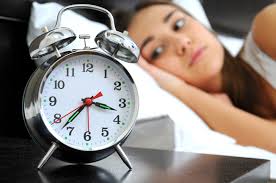By Gangadhar Kulkarni 397 weeks ago 1135 Views

Sleeplessness or Insomnia is really a common problem across all age groups. At the initial stage, we tend to ignore insomnia because we assume that this is because of the amount of pressure or depression I deal with. But when it becomes a routine, it’s high time to take it seriously. Surprisingly most of us are unaware that inadequate sleep has more adverse effects than we assume. Recently The American Academy of Sleep Medicine (AASM) and Sleep Research Society (SRS) both jointly issued the statement claiming sleeplessness might lead to depression, diabetes, weight gain and obesity, heart disease and stroke, hypertension, and increased risk of death health risks.
Adverse Effects of Insomnia
§ Inadequate sleep and poor quality sleep increases chances of developing cardiovascular diseases and high blood pressure.
§ People suffering from diabetes and having poor sleep quality, have to struggle more in controlling blood sugar level than those who had a good quality sleep.
§ As per research study published in journal Sleep, in 2015, less than 6 hours sleep is also associated with increased susceptibility to common cold and getting sick. In same journal Sleep, another study pointed that insufficient sleep might be a risk factor for obesity.
§ The AASM and SRS also observed increased pain, impaired immune system, poor performance, increased mistakes and risk of accidents are also associated with insomnia.
§ The National Institute of Neurological Disorders and Stroke mentioned the difficulty in controlling emotions, memory problems and trouble making decisions are side effects of poor sleep.
How Much Sleep is Adequate?
The reality is adequate sleep is most important to our physical and mental well-being. As per The American Academy of Sleep Medicine (AASM) guidelines published in last year, seven or more than seven hours sleep at night is adequate for adults. However, there is no statement about how much sleep is too much. But less than six hours sleep is considered as inadequate.
If you feel that you are not getting enough sleep, here are few tips to consider.
1. Turn off Electronic Gadgets:
Turning off your TV, Mobile, Tab, e-readers are the simplest and FREE way to improve your quality of sleep. This theory is scientifically proven, a study published in journal Proceedings of the National Academy of Sciences, in November 2014 found that use of electronic devices suppresses the level of melatonin, a sleep-inducing hormone.
2. Exercise Daily:
A regular moderate to vigorous daily workout is another free remedy for insomnia. It significantly improves the sleep quality. When you work out, it boosts the body temperature which can interfere with getting to sleep.
3. Make Sleep a Priority:
Workaholic or hard working people think that sleep is not as important as their work. Those must change their mindset that along with diet and exercise sleep is a third most important aspect of healthy lifestyle.
4. No Pills Please:
Taking prescription medicines to get enough sleep is not a permanent solution. Along with sleep pills you must use behavioral therapy. Sometime you might need medical expert’s advice as insomnia has numerous causes.
This post already published on YourDietMantra.
Tags: #health #fitness #sleep #weightloss #food
Gangadhar Kulkarni, owner of web development company is a Internet Marketing Professional having extensive experience in SEO & SMO. He is also founder of seogdk, a digital marketing blog where he shares information about SEO, SMO, SEM, blogging & web technologies by way of articles.
© 2025 www.scribhun.com, All rights reserved.

